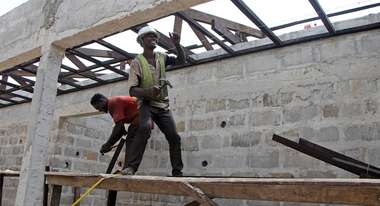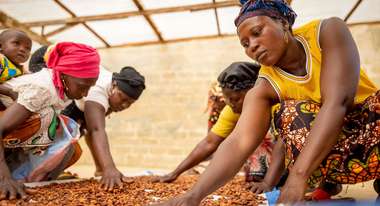Where the future of small farmers is growing
Those who sow reap a harvest, but it is not always enough to satisfy the hunger of an entire family. In rural areas of the Global South there is a paradoxical situation. Most of the 735 million people suffering from hunger around the world live in these areas where vegetables and cereals flourish in the fields.
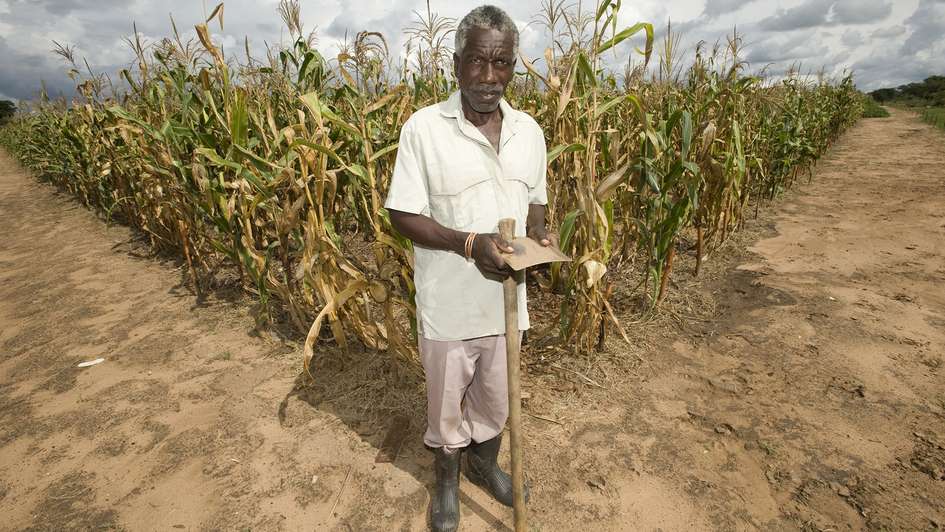
That is why Welthungerhilfe (WHH) gives targeted support to smallholders, not just through new cultivation methods. There are many aspects of sustainable and resilient agriculture, involving people and the environment.
Rural development as a driver
Zero Hunger by 2030 is WHH's core goal, in accordance with the UN Agenda. Rural development has played a central role in this since the aid organization was founded. Sustainable and resilient agriculture is promoted in accordance with the principle of empowering people to help themselves. The focus is on securing nutrition and reducing poverty. Using effective cultivation methods is vital. However, they must be appropriate for the local conditions and climate, as well as cultural traditions. Concrete facilities such as seed, irrigation, and marketing, must be provided to achieve food security. This can only be maintained sustainably by backing small farmers and strengthening their knowledge and skills, so they can earn an income independently.
Still, even large contributions cannot help if there is no fair, functional, economic cycle, to enable job creation and allow people to share in prosperity. WHH's work is based on the vision of all people having the chance to choose how they live, with dignity and justice, and freedom from hunger and poverty.
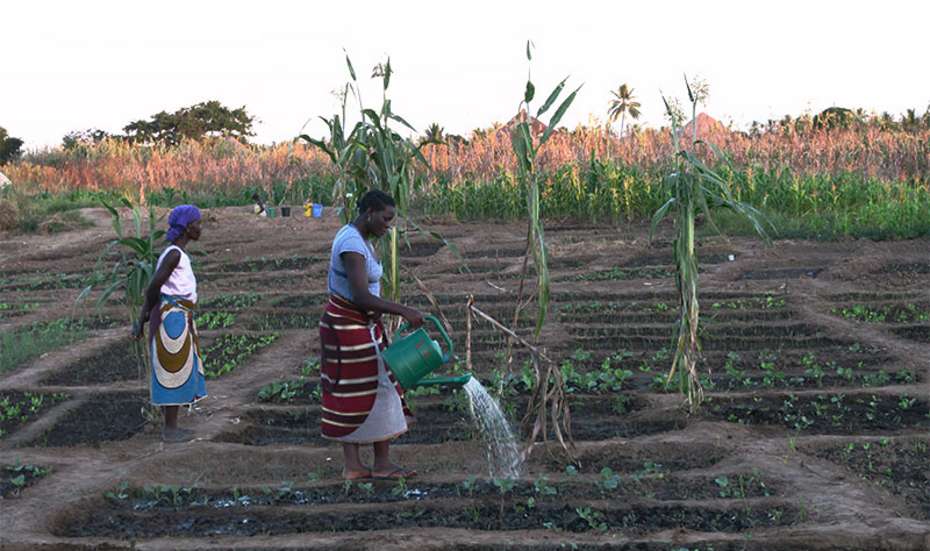
Healthy – from the seed to the plate
Efficient cultivation methods and optimized seed increase yields. It is not possible to expand economic potential in times of global climate change without preserving natural resources like air, soil, water, and biodiversity. This has already been put into practice in a WHH project in Zimbabwe. Many small farmers use organic waste as a sustainable fertilizer for their fields. Maize and sweet potatoes flourish and give their families a rich supply of healthy food. Elsewhere measures for erosion protection, efficient irrigation, and biological plant protection sustainably protect the productive soil. This means there is enough feed for hens and other livestock.
The land belongs to everyone
We must protect forests, arable land and pastures, and provide fair access. In cases of conflicts of interest, such as large agricultural investments engaged in land grabbing, WHH backs poverty-focused, participative land use planning and calls on politicians to act.
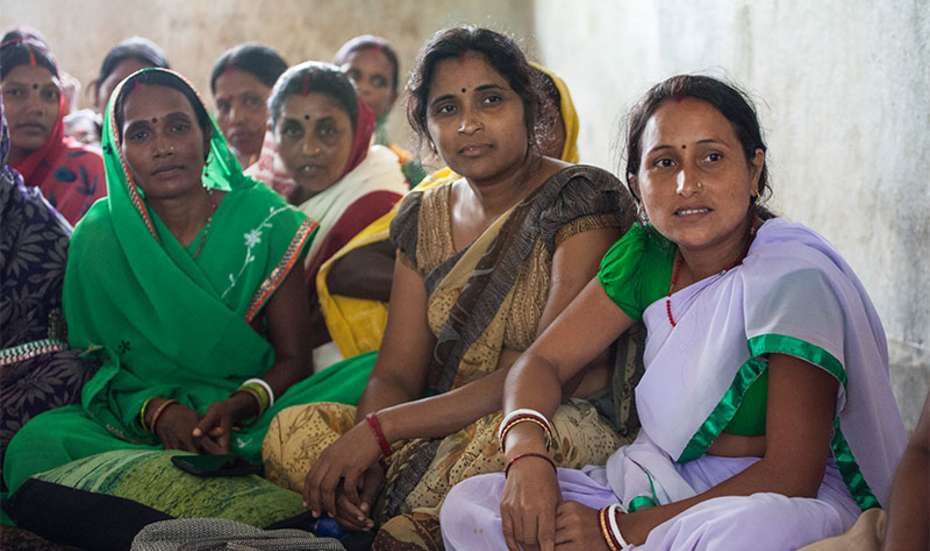
Stronger together
For 250,000 small farmers in the west of Sierra Leone life has changed for the better over recent years. They now work in cooperatives that export high-quality organic cocoa. This has involved a successful change in socio-cultural structure, in which gender equality has made a significant step forward. Women have had more say and contributed to the success of the operations.
A broad range of work is available
Agriculture opens up many opportunities for sources of business income. Processing, storing, and marketing agricultural produce creates jobs. The necessary knowledge is passed on by WHH-backed green colleges for example. There are already 15 of these educational institutions in India, supported by the Federal Ministry for Economic Cooperation and Development and the Society for International Cooperation (GIZ). Of the more than 40,000 trainees to date, about 36,000 have successfully established their own small farms or enterprises. Moreover, more than 200 of them have become trainers themselves. Based on this success, the initiative is now present in other countries, such as Uganda.






